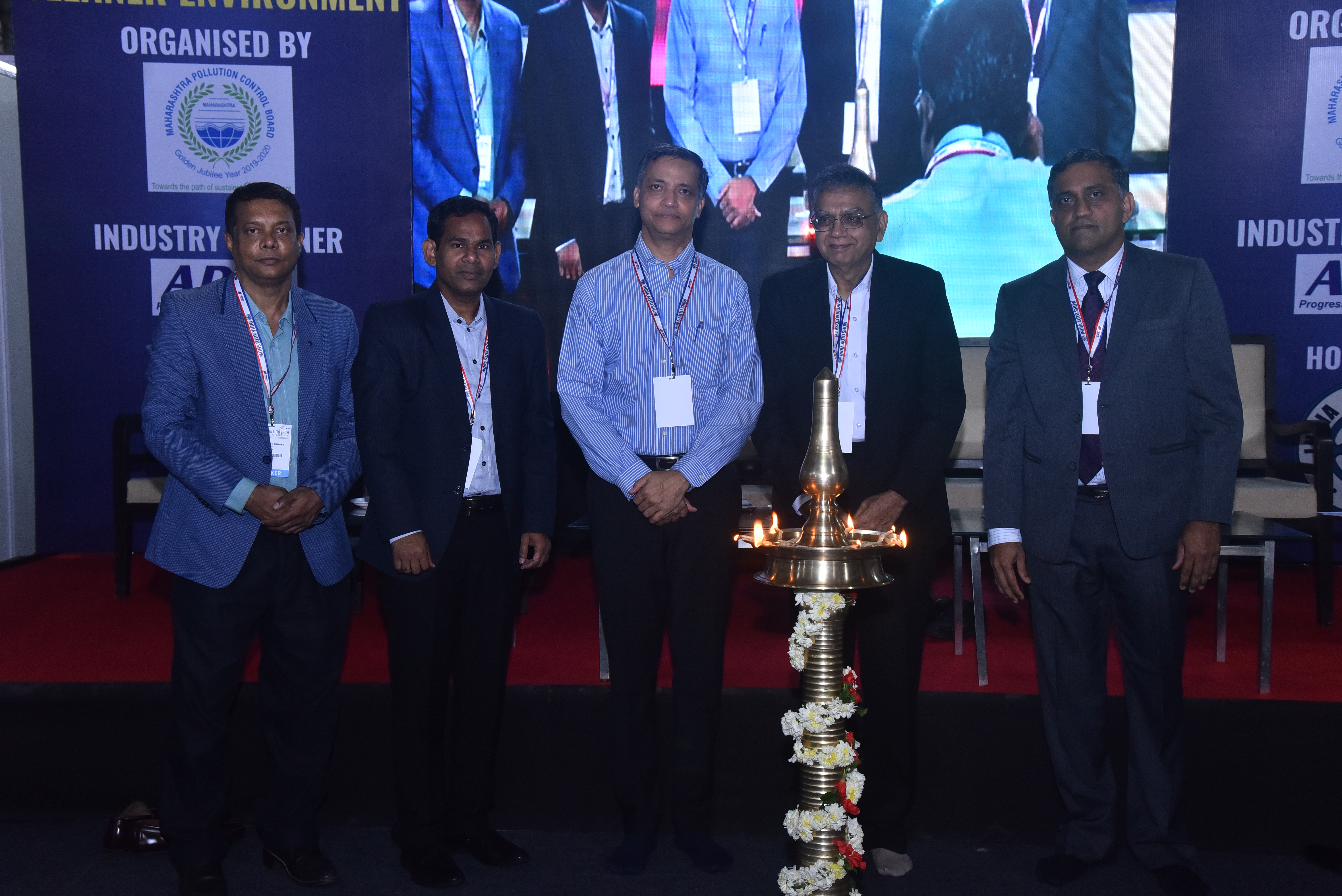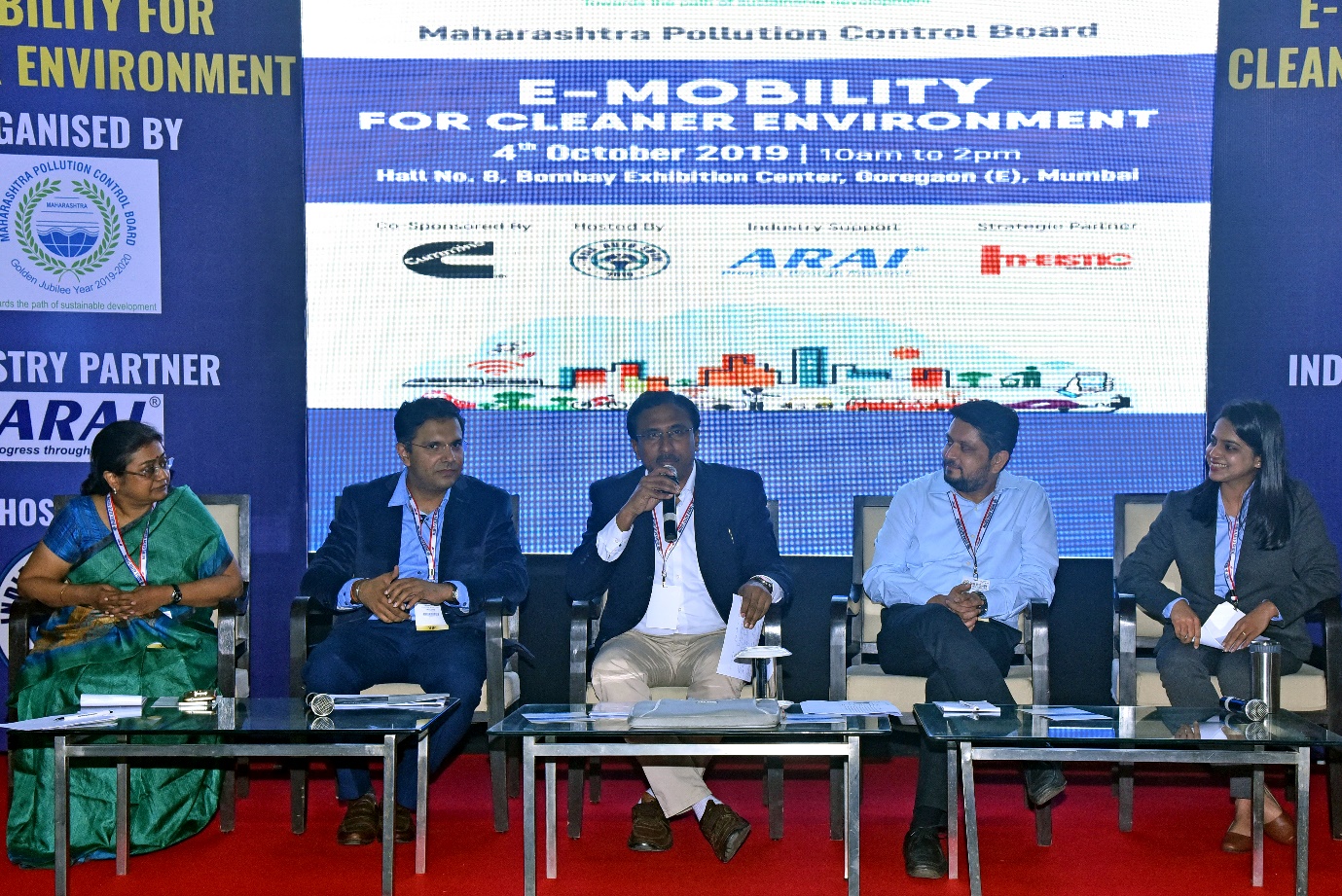Maharashtra Pollution Control Board with support of India Auto Show Expo organized a half day conference focussed on E -Mobility for Cleaner Environment recently at Bombay Exhibition Centre Mumbai. Mr. E. Ravendiran, Member secretary MPCB welcomed everyone and stated the need of cleaner transport technology for cities and highlighting global and India specific policy initiatives for electric mobility. He also mentioned extra efforts in terms of developing charging infrastructure for electric vehicles as well as appropriate policy development. Guest of Honour, Mr. Ramesh Subramanyam, CFO & President New Business, Tata Power highlighted the success of EV adaption depends upon the availability and quality of charging infrastructure provided which can effectively address user range anxiety issue. He further added that we need to improve the share of renewable energy in electricity grid mix so as to make EVs greener in true sense. He pointed out that conversion on electricity for usage needed to factor in change of ratio globe as usage goes up. He also pointed to the need to electrical scale for privately provided public infrastructure to be viable. Mr. Sudhir Shrivastava, Chairman, MPCB in his inaugural remarks mentioned that mobility is now shifting to the connected Automatic, shared electric (CASE) paradigm . Surveying the transition to electric mobility, he said that while the transition to electric 4 wheelers will be need good charging infrastructure, the shift to e-2 wheelers with possibility of battery swapping and home charging can happen quickly. He said that MPCB would be allowing to work with and support enterprise in the battery swapping area is also those in providing mobility as services ‘MASS” Chief Guest, Mr. Ashish Kumar Singh, IAS, Principal Secretary, Home & Transport Department highlighted that internal driver motor vehicle had revolutionised personal mobility level has now created its own problems . He stated that personal car is used only for a fraction of day is one of the most in efficiently used asset and move towards shared, electric mobility is gaining huge momentum. This is going to be the second personal mobility revolution
The technical Program was hosted and introduced by Dr. V.M. Motghare, Joint Director, MPCB with detailed elaborations and importance of emobility concept for cleaner environment and MPCB Goal to achieve same in lieu of govt of India’s National Clean Air Program. The first technical session about the faster adaption of e-mobility was chaired by Mr. Ashish Kulkarni from E & Y. The contributing members to this session was Mr. Surendrakumar Bagade (GM, BEST), Mr. Satish Sahastrabuddhe (Ad. Transport Commissioner), Mr. Paresh Bhatt (Chief – New Business, Tata Power). Mr. Sandeep Bhargava (VP – Ola) and Mr. Suwarn Pant (Tata Motors) Mr. Surendrakumar Bagade initiated his talk with efforts taken by BEST to improve the public transportation. He mentioned the existing EV fleet which is run by BEST with the help of contractor and future induction of new electric buses. Considering higher capital cost and lack of infrastructure, less number of existing operational contractors are interested for EV. With the recent procurement of smaller size EV buses by BEST will improve the flexibility of operation in Mumbai city. He suggested that based on real time pollution levels, public transportation systems should be promoted over personalized transportation.
Second session on ‘Environmental Aspects of E-Mobility’ was chaired by Mr. Nitin Labhsetwar (Sr. Scientist – CSIR NEERI) which include the panel of Ms. Anuradda Ganesh (Director – Cummins), Mr. Moqtik Bawase (GM – ARAI), Mr. Kedar Rele (Country GM – Umicore) and Ms. Prachi Nimkar (Director – Ecosupport). Session chairperson Mr. Labhsetwar set the tone of session by mentioning that transportation means / fuels should be evaluated. Based on lifecycle analysis Ms. Anuradda Ganesh mentioned that currently EVs are having higher CO2 footprint than existing options. Based on Well to Wheel analysis, CNG is best option among Diesel, petrol, EV and hydrogen fuel cells. She suggested that mix of BEV, IC engines based on biofuels blending is required to optimize environmental aspects from transportation. Mr. Moqtik Bawase highlighted that the battery manufacturing the capital and environment intensive industry. ARAI is centre of excellence for Electric vehicles and they are currently developing alternative cell technology for Indian conditions. Mr. Kedar Rele from Umicore mentioned that circular economy in terms of battery recycling and replacing virgin material by recycled for battery is important considering sustainable future. Dismantling of li-ion battery is crucial from safety perspective. Ms. Prachi Nimkar presented various air quality scenarios in terms of CO and PM perspective due to EV adaption. Policy continuity and phase out plans for older vehicles is required along with setting up priorities for EV adaption.
Conference concluding remarks were delivered by Mr. E. Ravendiran (Member secretary, MPCB). He mentioned that holistic approach to understand environmental impact at source and receptor is required for electric vehicles.


